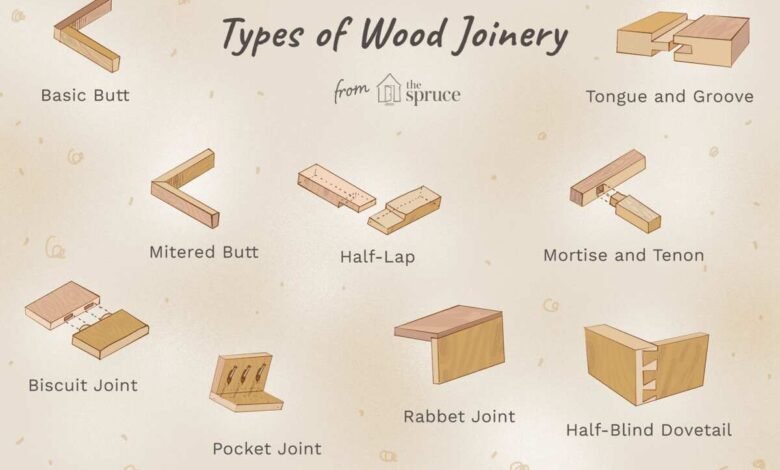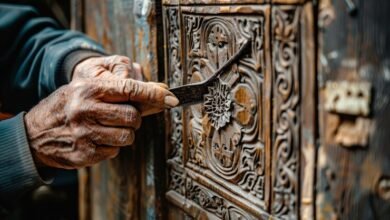Sustainable Wood Options for Construction Projects: A Practical Guide

In recent years, sustainable wood options have become increasingly popular in construction projects, from residential homes to modern office spaces. With the global shift toward environmentally friendly materials, it’s essential for builders, architects, and property owners to understand the benefits and best practices surrounding sustainable wood. This guide explores various types of sustainable wood, including sourcing practices and fasteners that maximize longevity and efficiency in construction – tokohasil.com.
Why Choose Sustainable Wood?
Sustainability in construction is not just about the end product but also about how materials are sourced and the impact on ecosystems. Using sustainably harvested wood minimizes deforestation, reduces carbon footprints, and promotes responsible forestry management. Moreover, sustainable wood often comes from forests certified by agencies like the Forest Stewardship Council (FSC), ensuring that trees are replanted and ecosystems are preserved.
Key benefits include:
Environmental Responsibility: Reduces deforestation and encourages reforestation.
Longevity and Durability: Sustainable woods, such as cedar and bamboo, are known for their resilience.
Enhanced Aesthetic and Market Appeal: A growing number of buyers prioritize eco-friendly materials, making sustainably sourced wood a market differentiator.
Top Sustainable Wood Options for Construction
FSC-Certified Softwoods and Hardwoods
Choosing **FSC-certified softwoods (like pine and spruce) and hardwoods (like oak and maple) ensures responsible forestry practices. This certification confirms that the wood comes from forests managed for long-term sustainability. Softwoods are ideal for framing and structural components, while hardwoods are often preferred for furniture, flooring, and cabinetry due to their durability and appearance.
Applications: Structural framing, flooring, wall paneling.
Advantages: Versatile, widely available, reliable certification.
Considerations: Choose fasteners that complement the specific wood type for lasting results.
Reclaimed and Recycled Wood
Reclaimed wood, sourced from old structures or naturally fallen trees, adds a unique aesthetic to modern construction while saving resources. This wood has a unique character and, often, higher density due to age, making it durable and suitable for both homes and offices.
Applications: Feature walls, flooring, accent furniture.
Advantages: Eco-friendly, highly durable, unique textures and finishes.
Considerations: Often requires special fasteners to handle dense or aged materials.
Bamboo: The Rapidly Renewable Resource
While technically a grass, bamboo has become a popular sustainable alternative to traditional wood. It grows rapidly, reaching full maturity within 3–5 years, which makes it a highly renewable resource. Bamboo is exceptionally strong and can be used for various construction elements, from flooring to wall panels.
Applications: Flooring, decorative wall panels, cabinetry.
Advantages: Rapid growth, high strength, and aesthetic versatility.
Considerations: Requires special adhesives or fasteners designed for bamboo’s unique composition.
Engineered Wood Products (EWP)
Engineered wood products, including cross-laminated timber (CLT) and laminated veneer lumber (LVL), are created by bonding wood layers together, maximizing resource use by utilizing smaller or lower-quality wood pieces. These products are incredibly strong, versatile, and ideal for large-scale projects.
Applications: Structural beams, flooring, walls.
Advantages: High strength, resource-efficient, reduced waste.
Considerations: Choose fasteners specifically designed for engineered wood, as traditional nails may not provide the necessary hold.
The Role of Fasteners in Sustainable Wood Construction
Choosing the right fasteners is as crucial as selecting sustainable wood. Fasteners impact both the structural integrity and longevity of a project, especially when working with different wood densities and types.
- Stainless Steel Fasteners – baut & mur: Ideal for outdoor projects and high-moisture areas, as they resist corrosion, ensuring a longer-lasting bond.
- Galvanized Steel Fasteners: Cost-effective and durable for most construction applications, particularly when working with engineered or reclaimed wood.
- Wood-Specific Adhesives: Engineered wood and bamboo sometimes require adhesives rather than traditional fasteners. Ensure that adhesives are low-VOC for environmentally friendly results.
- Eco-Friendly Fasteners: Newer options include biodegradable or partially recycled fasteners that align with sustainable construction goals.




